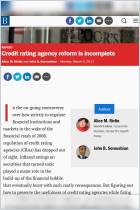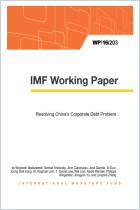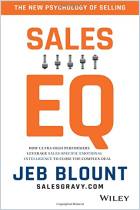
Read or listen offline
автоматическое преобразование текста в аудио
1×
автоматическое преобразование текста в аудио
Recommendation
Imagine paying someone to rate you and then expecting their evaluation to be entirely objective. As inane as it sounds, that’s the current setup between issuers and the credit rating agencies that assign those all-important letter grades to structured securities. There ought to be a better way, but – as economist Dion Bongaerts points out in his erudite analysis – alternatives may not be as cost-effective or competitive as the existing issuer-paid system. getAbstract recommends this seminal report to investors, issuers and analysts involved in assessing securities risk.
Take-Aways
About the Author
Dion Bongaerts is an associate professor of finance at Erasmus University’s Rotterdam School of Management.
















Comment on this summary or Начать обсуждение